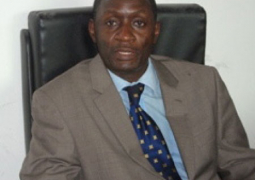A UNICEF briefing session on children’s rights with emphasis on equity, using the UN Convention on the Rights of the Child (UN CRC), which The Gambia was one of the first countries to ratify, was held for National Assembly Members (
“Making child rights a reality for the most vulnerable children is truly an ambitious and challenging objective, [but]….the National Assembly has the power to create real and lasting change for children. It can allocate resources from national budgets, establish strong policy directions, and debate, shape and enforce laws that protect children,” stated UNICEF Deputy Representative in The Gambia Dr. Meritxell Relaño in her remarks to welcome the
“UNICEF strongly believes that the best investments any society can make should be in the protection and development of children. This is the strongest and the most viable political agenda, and one which always enjoys broad public support,” Dr. Relaño continued.
The country, over the past 23 years, has achieved many gains in translating the ideas of the UN CRC into concrete actions resulting in initiatives favorable to children such as the enactment of the 2005 Children’s Act and the establishment of two children’s courts.
These historic achievements are due in large part to parliamentarians. Strengthening their existing capacity through information-sharing and knowledge building on children’s rights and areas of inequity will ensure that children’s issues remain prominently on the national agenda, so that better policies are enacted and sufficient budgets allocated to the relevant sectors for enhanced systems and services for the most vulnerable children.
It is with this in mind that UNICEF embarked on the orientation and re-orientation of new and existing
Highlighted were fundamental articles from the UN CRC related to survival, development, education, health, and participation, among others, and functions which parliamentarians are supposed to perform to effectively protect and promote those rights.
An overview of the situation of children in The Gambia was also presented using data from the MICS to demonstrate regional, gender and wealth disparities in access to basic social services followed by a synopsis of the equity concept in the Gambian context.
Speaking on behalf of the
Mbye reiterated the
UNICEF confirmed its commitment to provide technical assistance to the National Assembly, the
About UNICEF
UNICEF works in 190 countries and territories to help children survive and thrive, from early childhood through adolescence. The world’s largest provider of vaccines for developing countries, UNICEF supports child health and nutrition, good water and sanitation, quality basic education for all boys and girls, and the protection of children from violence, exploitation, and AIDS. UNICEF is funded entirely by the voluntary contributions of individuals, businesses, foundations and governments.


